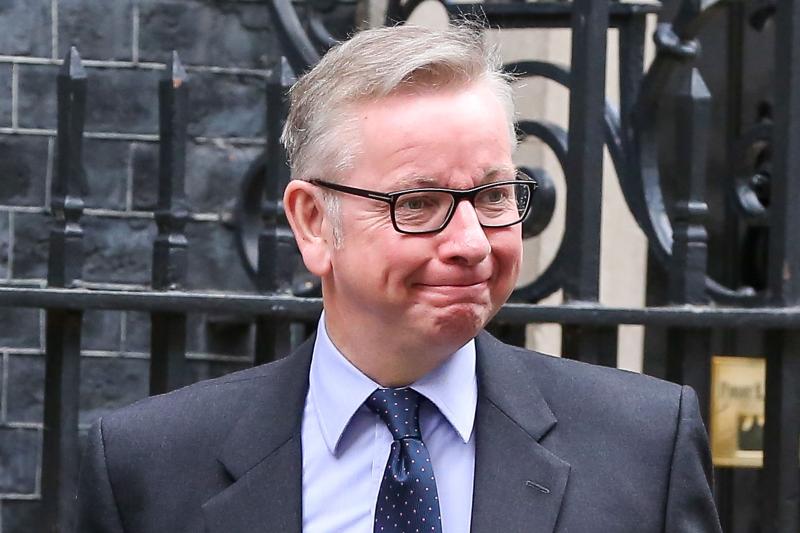
The Government has formally launched its proposals for replacing European Union support schemes after the United Kingdom leaves the EU.
Defra Secretary Michael Gove had already indicated in speeches at the Oxford Farming Conference and the NFU conference that he wants to replace the current Common Agricultural Policy with an agricultural support scheme that encourages farmers to protect the environment and invest in new technology to improve productivity.
Now, Defra has published a consultation document in which the Government proposes phasing out direct payments following the UK's withdrawal from the EU. It suggests a number of options, including progressive reductions to farmers’ payments.
The Government’s proposals would see money redirected from direct payments under CAP, which are based on the amount of land farmed, to a new system of paying farmers “public money for public goods” - principally for their work to enhance the environment and invest in sustainable food production.
“As we leave the EU, we have a historic opportunity to deliver a farming policy which works for the whole industry," said Mr Gove in launching the consultation paper.
“Today we are asking for the views of those who will be affected to make sure we get this right so any future schemes reflect the reality of life for farmers and food producers.
“The proposals in this paper set out a range of possible paths to a brighter future for farming. They are the beginning of a conversation, not a conclusion, and we want everyone who cares about the food we eat and the environment around us to contribute,” he said.
'Not worked'
The consultation will run for 10 weeks, closing on May 8. The Government says that it provides an opportunity for farmers to be more central to Government thinking than at any time for fifty years.
The consultation document - 'Health and Harmony: The Future for Food, Farming and the Environment in a Green Brexit' - offers a range of proposals on which the Government is seeking the industry's views.
At the NFU conference Michael Gove told delegates: “If we’re honest, the Common Agricultural Policy has not worked either for our food economy or for the natural environment.”
At the Oxford Farming Conference, he said that CAP had evolved and improved over time. But he said it was still a “fundamentally flawed design.” He said: “Paying land owners for the amount of agricultural land they have is unjust, inefficient and drives perverse outcomes.
“It gives the most from the public purse to those who have the most private wealth. It bids up the price of land, distorting the market, creating a barrier to entry for innovative new farmers and entrenching lower productivity.”
Future scheme
The Defra Secretary said that the Government would be publishing a consultation document outlining proposals on a future scheme for UK agriculture. That document has now been released, offering a number of options.
There are options for how to gradually phase out direct payments, starting with the largest landowners, and including use of a cap, whilst developing a new environmental land management scheme.
The document says that a cap of the largest payments could, for example, be applied at £100,000. This would affect some 2,100 farmers (two per cent recipients).
A progressive reductions option could, in the first year of the agricultural transition, affect some 19,000 farmers (22 per cent of recipients).
Of these, 13,500 would face a payment reduction of less than £5,000 and around 3,000 of the farmers with claims worth over £200,000 would face a payment reduction of over £75,000, says the document.
'Public goods'
The Government's options, it says, could raise around £150 million in the first year - money that could be used for the environment and other "public goods."
This is a phrase that Michael Gove used at both the Oxford Farming Conference and at the NFU conference. He said that leaving the European Union would allow the UK to deliver a "green Brexit", encouraging environmental protection.
He said the UK could also invest in technology and skills, alongside infrastructure, public access and rural resilience.
The consultation document says that a range of public goods could qualify for Government funding under the CAP replacement, such as high animal welfare standards, wildlife protection, public access and new technologies.
It says that measures to move away from "heavy handed enforcement, which penalises farmers for minor errors," could be part of the new scheme. There could be a more efficient inspection regime to uphold important environmental and animal welfare standards.
And it refers to new business models and incentives for industry to invest in innovation and new technologies to increase their profitability.
'Inefficient'
"The current system of support for farmers and landowners shaped by the CAP is inefficient and inequitable," said the Government in its release about the consultation.
"It does not secure the public goods needed to enhance our environment, such as resilient habitats, richer wildlife, healthier rivers and cleaner water."
The Government said that it will abide by an election manifesto pledge to commit the same cash total in funds for farm support until the end of this Parliament in 2022.
In the document it proposes an "agricultural transition" lasting a number of years beyond the implementation period, during which direct payments would continue, "providing stability and certainty for farmers as they prepare for the new system."
The consultation document asks respondents for their views on exactly how long this transition period should last.
Farm payments in 2019 will follow the existing model, it said. In the meantime, the Government said it has pledged to simplify applications for farmers wishing to enter into existing schemes to provide environmental benefits, such as Countryside Stewardship.
